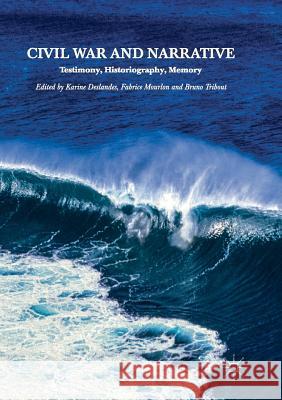Civil War and Narrative: Testimony, Historiography, Memory » książka
topmenu
Civil War and Narrative: Testimony, Historiography, Memory
ISBN-13: 9783030096588 / Angielski / Miękka / 2018 / 244 str.
Kategorie BISAC:
Wydawca:
Palgrave MacMillan
Język:
Angielski
ISBN-13:
9783030096588
Rok wydania:
2018
Wydanie:
Softcover Repri
Ilość stron:
244
Waga:
0.32 kg
Wymiary:
21.01 x 14.81 x 1.45
Oprawa:
Miękka
Wolumenów:
01
Dodatkowe informacje:
Wydanie ilustrowane











